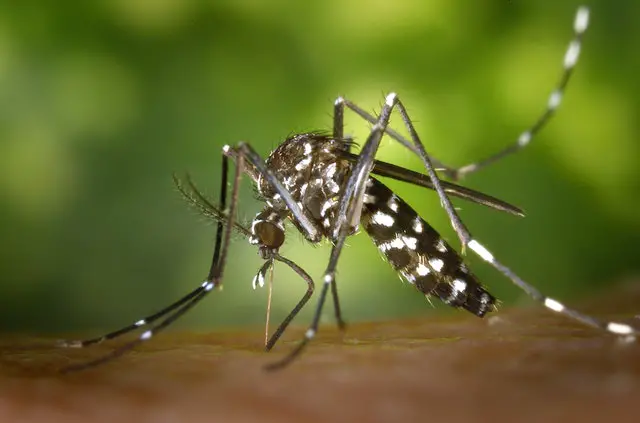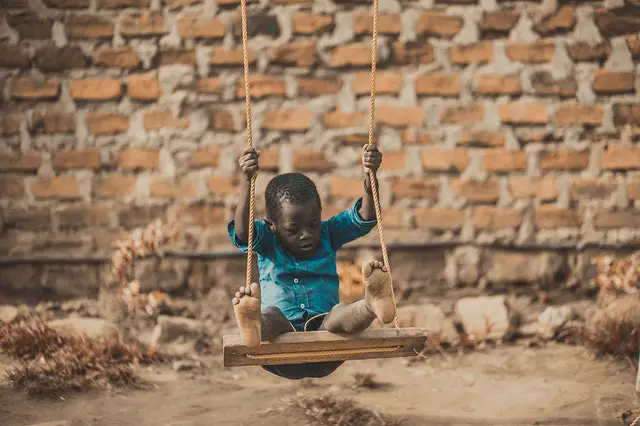Vaccines have been a hot topic in the past few years, with COVD sweeping the world. However, many countries, especially developing countries, have bigger issues with other diseases such as Malaria. While COVID is a significant issue globally, Malaria has killed more people in Africa than COVID has this year. Malaria has also been around a lot longer, causing problems in Africa. A vaccine is required, and African countries need help buying and distributing a Malaria vaccine to their population.
If you’ve only heard of malaria vaccine but know nothing about it, listed below are 20 questions you may have about the disease, with a lot of helpful information to get you up to speed.
1. What is Malaria?
Malaria is a serious infectious disease that can often lead to death in certain types of people. Malaria is caused by a parasite found in many mosquitos. Four different kinds of Malaria can infect humans, one of which infects both humans animals.
Although Malaria can be a deadly disease, there are effective treatments and preventions for it. However, these options are not always available in the poorest countries due to cost or continuous access to medical care.
2. Who can get Malaria?
Malaria can infect anybody, though developed countries such as the United States do not have a Malaria problem. Most Americans that get Malaria have traveled to a country that has it.
3. How is Malaria transmitted?
Malaria is transmitted in a number of ways:
- Mosquitoes infected with the Malaria parasite will transmit it to humans they bite.
- Mothers can transmit Malaria to their babies, even before they’re born.
- Blood to blood contact can also transmit it, usually via blood transfusion or needle sharing.
4. Is Malaria contagious?
Malaria is not contagious like COVID. The only way there could be transmission between people is through blood. This transmission could be from anything that involves blood mixing between people, like shared needles, organ transplants, and blood transfusions.
5. What are the signs and symptoms of Malaria?
Symptoms of Malaria typically start within a few weeks of transmission. However, some types of Malaria will stay dormant for up to a year before symptoms start.
Some people may experience symptoms in waves, meaning feeling fine for a while, but the symptoms come back.
The typical symptoms of Malaria are:
- Abdominal pains
- Chills
- Coughing
- Diarrhea (gut health problems)
- Feeling fatigued
- Fever
- A general feeling of discomfort
- Headaches
- Muscle or joint pain
- Nausea and vomiting
- Rapid breathing
- Rapid heart rate
6. How can you treat Malaria?
The best treatment for Malaria would be stopping it from the beginning with an effective vaccine.
Travelers from America and other developed countries will often take preventative drugs that kill the parasite if it enters their system. However, the side effects from these drugs can cause similar symptoms as Malaria, so many travelers forego preventative measures and risk catching Malaria. However, they generally have easy access or even bring antimalarial drugs with them if they happen to catch it.
If you catch Malaria, you need to be prescribed antimalarial drugs. Unfortunately, no single drug is 100% effective, so a combination of drugs will be required.
Leaving Malaria untreated can result in death, especially in sick adults or children.
7. Are antimalarial drugs expensive?
Antimalarial drugs are not especially expensive to people traveling; they generally have easy access to medicine and even insurance that may cover such things.
However, antimalarial drugs in developing countries can cost up to 65 times the daily minimum wage. So if you need to take a seven-day course of antimalarials, that could cost you a lot of money you don’t have. This cost becomes a big issue when you barely have enough money in the first place and have to choose between feeding your family or getting treatment.
You may not even have access to the medicine or a doctor regularly.
8. Is there a vaccine for Marlia?
There are currently two vaccines available for Malaria.
Mosoquirix has been available since 2020. However, its effectiveness is still relatively low in all groups it tested on. But, it’s the best option available for the moment and has been approved by the World Health Organization.
A new vaccine (R21/Matrix-M) is currently in trials at the moment. This vaccine has been tested with an effectiveness of around 77%, which is encouraging.
9. What are the long-term effects of Malaria?
The long-term effects of Malaria are not well known, generally because this is not an issue affecting countries with the resources to study this type of thing.
There are two scenarios for long-term effects:
- If treated early and correctly, you should have no apparent long-term effects from Malaria.
- If left untreated or too late, you may experience severe cerebral Malaria, which can have long-term neurological effects, which are not fully understood yet.
10. What are the long-term effects of Antimalarial drugs and vaccines?
Vaccines for Malaria are relatively safe, with no real long-term side effects reported.
Antimalarial drugs have various long-term effects, and it depends on which ones you took. Still, in general, you may find that regular use of these drugs can cause effects such as:
- Anxiety
- Paranoia
- Depression
- Vertigo
- Confusion
- Hallucinations
- Psychotic behavior
11. How many people has Malaria killed?
Worldwide estimates in 2019 show around 229 million people contracted Malaria and 409,000 people dying.
Malaria is a very preventable and treatable disease, so 409,000 people dying is very high.
12. Wasn’t Malaria eradicated already?
Malaria has been eliminated from most developed countries such as the United States. Still, it has not been eradicated, especially in developing countries with temperate climates.
A campaign was started in the 1950s to eradicate Malaria. However, this has obviously failed. Issues with mosquitoes becoming resistant to insecticides, Malaria parasites becoming resistant to antimalarial drugs, and general administrative issues, have allowed Malaria to continue to thrive in developing countries.
13. Why does Malaria so heavily impact Africa?
Most African countries lack the resources to combat Malaria. As a result, they are heavily reliant on other countries and non-profit organizations to assist in even treating their population for Malaria.
Africa has several other factors that make Malaria thrive in the environment:
- A very efficient mosquito is native to Africa, and it causes high transmission rates. Other mosquitoes are not as effective.
- The main parasite being transmitted in Africa is the species most likely to cause serious issues.
- Local weather is exceptionally comfortable for the mosquito and allows year-round transmission.
14. How many doses of the vaccine are required each year in Africa?
The WHO has estimated that 50 – 110 million doses of a Malaria vaccine would be required by 2030 if it was administered to areas with a medium to high level of Malaria transmission.
Consider that GSK, which makes the only current vaccine, will be able to distribute 15 million doses per year, with a commitment only till 2028.
15. What is the WHO?
The WHO is the World Health Organization, a United Nations agency responsible for international health matters.
16. What is the African Union?
The African Union is a continental union between 55 African countries or states. Part of their mandate is to work with international organizations to eradicate preventable diseases, which include Malaria.
17. Will the WHO supply the African Union with vaccines?
The WHO has listed Mosquirix as the first approved vaccine to combat Malaria. The African Union is discussing how to get the vaccine into all African countries, with the WHO and GAVI (the vaccine alliance). Current talks will be about the cost and availability of the vaccine.
The WHO has already funded a vaccine trial in three African countries, administering 2.3 million doses.
18. Why are Malaria cases increasing?
Climate change may be causing mosquitoes to travel into areas that previously didn’t have Malaria, giving the mosquitoes a larger population to infect.
As was previously seen, Malaria parasites can also become resistant to available antimalarials, which is also why a vaccine is essential. Once we run out of antimalarials, then Malaria becomes an even bigger problem.
19. What does sickle cell anemia have to do with Malaria?
It’s unknown why, but people with sickle cell disease are less likely to catch Malaria, but they have more severe symptoms if they catch it.
More research needs to be done on why this is the case.
20. Does the survival of Malaria mean you are now immune?
Recovering from Malaria does not stop you from getting Malaria again. Research suggests that immunity to Malaria can take up to 20 years of infections before you get a natural immunity.
This immunity issue has also been why vaccines have been so slow to be developed for Malaria.
Final Thoughts
Malaria is a serious issue, mainly affecting poorer countries that don’t have the resources to combat it or properly treat their population. In addition, the drugs are expensive and not widely available.
A vaccine is going to be hugely beneficial to the populations in these countries. They can receive their set of doses and not worry about ongoing costs, illness, or even death from Malaria.
With the distribution of COVID vaccines in the past two years, we know it’s possible to get vaccines out to all countries quickly and with minimal cost when governments can’t afford it. Limiting this type of help to only specific issues could be considered unfair or even unethical.
All that’s known is that a vaccine for Malaria is sorely needed; otherwise, we’re going to continue seeing over 250,000 African children dying every year from a preventable disease.



